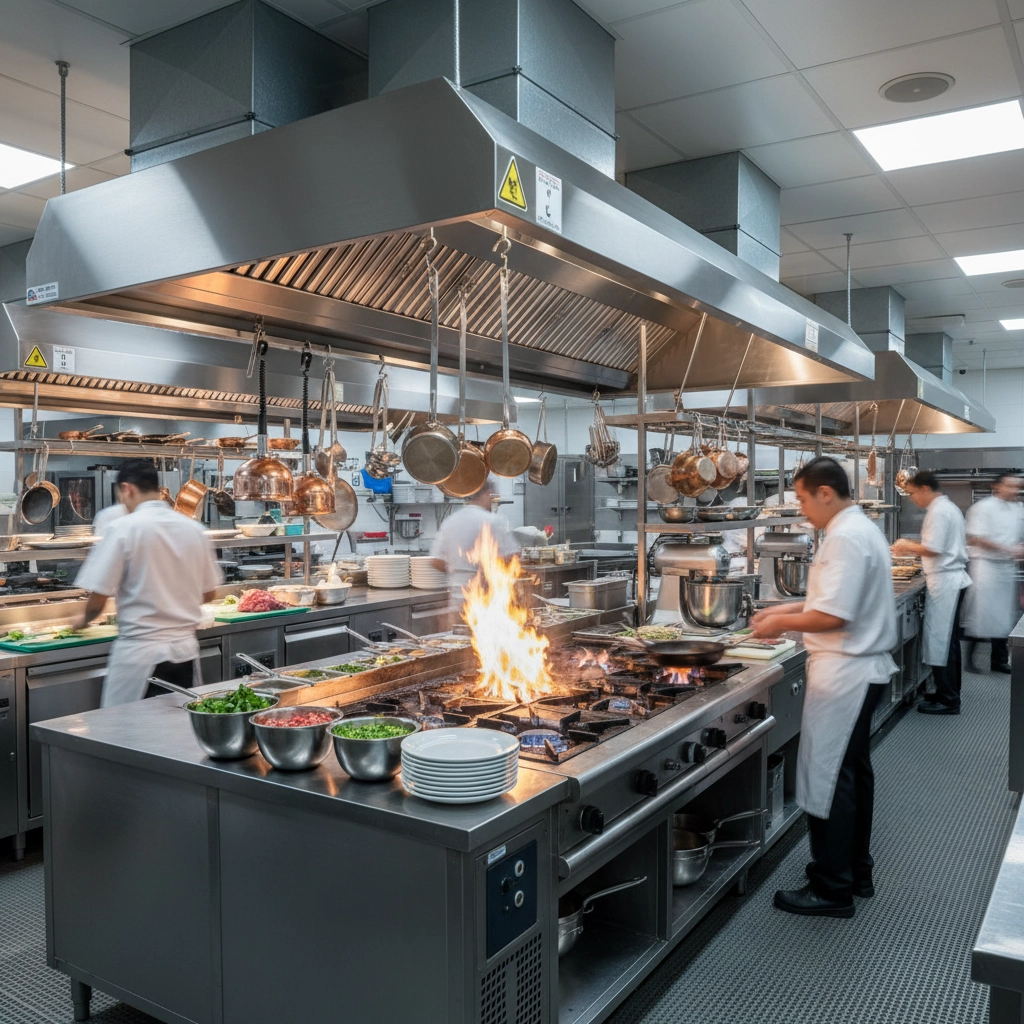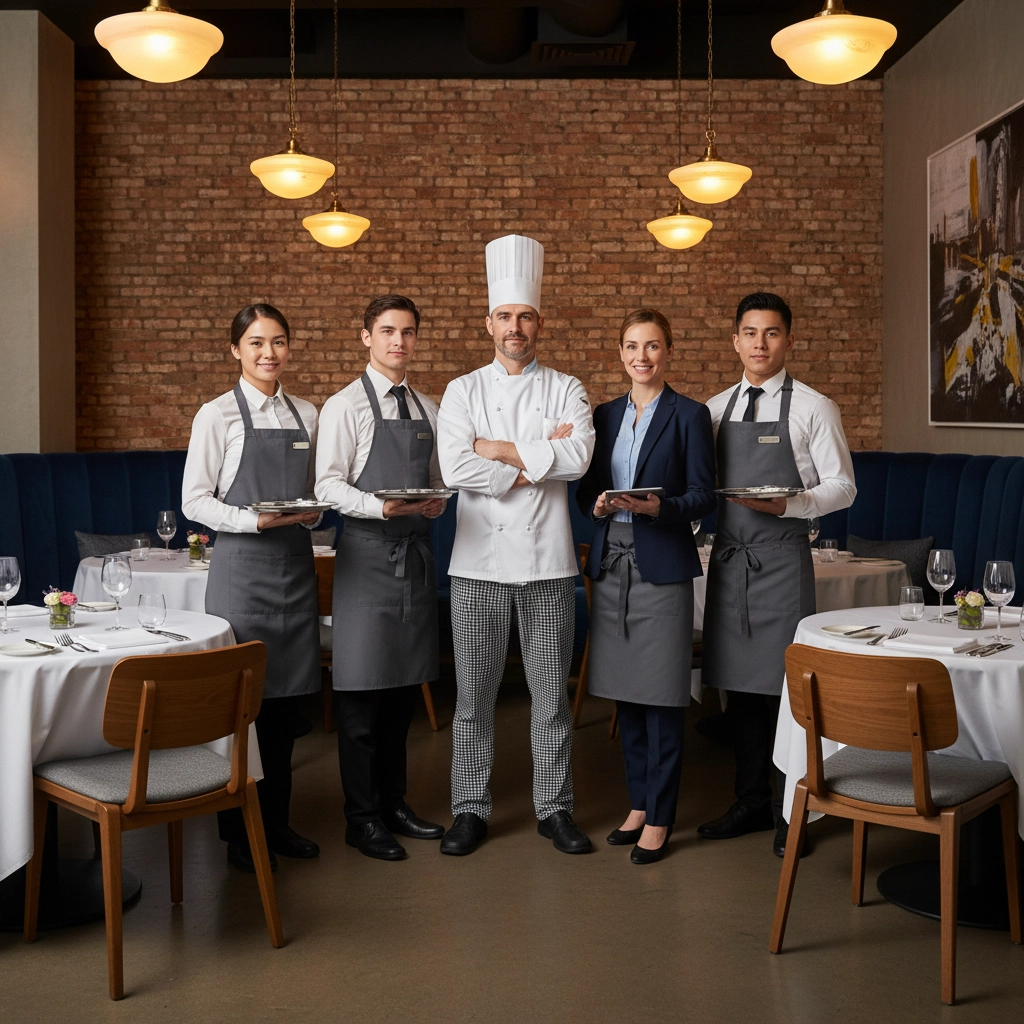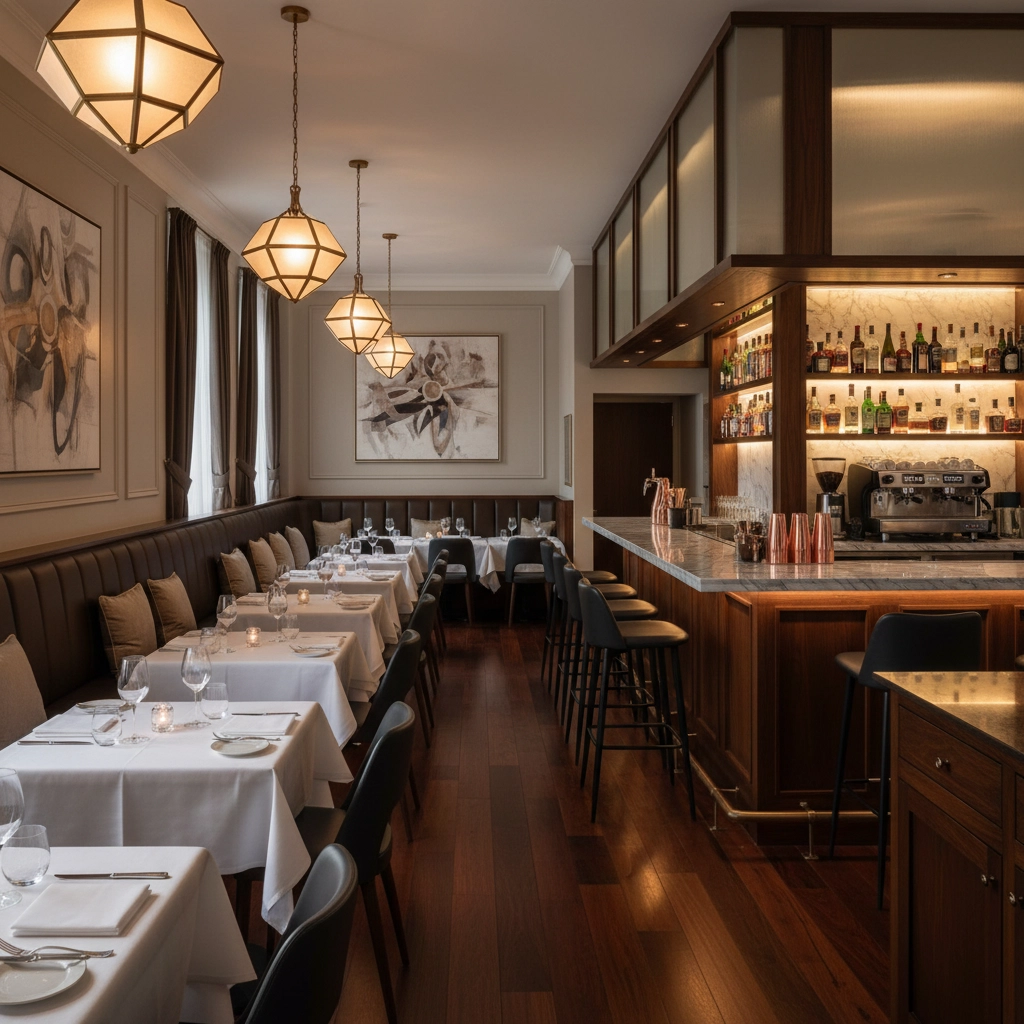Looking For Restaurant Insurance Quotes? Here Are 10 Things You Should Know
- marketing676641
- Oct 25, 2025
- 4 min read
Restaurant insurance protects your business from financial losses due to accidents, injuries, property damage, and other risks. Getting accurate quotes requires preparation and understanding of the insurance process. These ten essential points help you navigate restaurant insurance quotes effectively.
1. Gather Essential Business Information Before Requesting Quotes
Insurance companies require specific details about your restaurant to calculate accurate premiums. Prepare your business location and address, annual revenue projections, number of employees, restaurant square footage, type of cuisine served, cooking methods used, and hours of operation.
Document whether you own or lease your property. Include details about your kitchen equipment, dining capacity, and any additional services like catering or delivery. Having this information ready streamlines the quote process and ensures accuracy.

2. Wait Until You Sign Your Lease to Request Quotes
Insurance quotes depend heavily on your restaurant's physical location and space details. Requesting quotes before finalizing your lease provides inaccurate information that may not reflect your actual insurance needs.
Sign your lease agreement first, then extract necessary property details for insurance quotes. This approach ensures quotes reflect your actual restaurant space, location risks, and lease requirements.
3. Understand Key Factors That Influence Your Quote
Insurance companies evaluate approximately ten primary factors when calculating restaurant insurance premiums. Location plays a significant role, especially proximity to natural disasters, high-crime areas, or busy streets.
Your restaurant's sales volume, payroll expenses, and types of activities affect pricing. Establishments offering entertainment, live music, or late-night service typically face higher premiums. The proportion of alcohol sales versus food sales also impacts costs significantly.
Years in business and loss history influence quotes. New restaurants without established track records may face different pricing than established businesses with clean safety records.
4. Know What Coverage Types Your Restaurant Needs
Restaurant insurance typically includes general liability, property insurance, workers' compensation, and commercial auto if applicable. General liability covers customer injuries, property damage, and food-related illnesses.
Property insurance protects your building, equipment, inventory, and furnishings from fire, theft, vandalism, and weather damage. Workers' compensation covers employee injuries and illnesses occurring during work.
Consider additional coverages like liquor liability if you serve alcohol, cyber liability for payment processing systems, and business interruption insurance for lost income during covered closures.

5. Work With Specialized Restaurant Insurance Providers
Insurance companies specializing in restaurant coverage understand your industry's unique risks better than general business insurers. Specialized providers offer tailored policies addressing kitchen fires, food contamination, customer slip-and-falls, and equipment breakdowns.
Ask potential insurers how many restaurants similar to yours they currently insure. Request references from five current restaurant clients to verify their expertise and service quality.
6. Use Online Quote Tools for Preliminary Estimates
Many insurance providers offer online quote tools providing preliminary estimates within minutes. These tools help you understand potential coverage options and approximate pricing before speaking with agents.
Online quotes provide starting points for insurance discussions. They help you compare different providers and coverage levels efficiently. However, final quotes require detailed conversations with insurance professionals.
7. Review Lease Requirements Carefully
Restaurant lease agreements typically specify minimum insurance requirements you must maintain. Your landlord may require specific coverage amounts for general liability, property insurance, and additional insured endorsements.
Review your lease thoroughly to understand mandatory coverage types, minimum limits, and any special requirements. Failing to meet lease insurance requirements constitutes a lease violation with serious consequences.
Some leases require tenant insurance to cover improvements and betterments you make to the space. Others mandate specific deductible amounts or require landlord approval of insurance carriers.

8. Expect Customized Pricing Based on Your Restaurant Type
Insurance companies recognize that different restaurant types face varying risk levels. A small café operates differently than a large sports bar with multiple dining areas, full bar service, and live entertainment.
Fast-casual restaurants with limited seating and no alcohol service typically receive different pricing than full-service establishments with extensive wine lists and late-night hours. Food trucks face mobile-specific risks requiring specialized coverage approaches.
Your restaurant's unique characteristics directly influence your insurance quote. Provide accurate, detailed information about your specific business model and operations.
9. Plan for Risk Management and Loss Prevention
Insurance companies evaluate your restaurant's safety measures and risk management practices when calculating quotes. Demonstrate commitment to loss prevention through employee training programs, safety protocols, and maintenance schedules.
Document your food safety procedures, employee training records, and equipment maintenance practices. Some insurers offer premium credits for restaurants implementing comprehensive safety programs or installing security systems.
Consider how your restaurant's design, layout, and operational procedures affect risk exposure. Well-planned kitchens with proper ventilation, non-slip flooring, and appropriate lighting may qualify for favorable pricing.

10. Schedule Annual Policy Reviews
Restaurant insurance needs evolve as your business grows and changes. Schedule annual policy reviews to ensure coverage remains adequate for your current operations, revenue levels, and risk exposures.
Use annual reviews to evaluate new coverage options, assess claim experiences, and discuss any operational changes affecting your insurance needs. Menu additions, hour extensions, or new service offerings may require coverage adjustments.
Annual reviews also provide opportunities to reassess your insurance provider's service quality and competitive positioning in the market.
Getting Started with Restaurant Insurance Quotes
Restaurant insurance protects your investment and provides financial security for your business operations. Understanding these ten key points prepares you to request accurate quotes and make informed coverage decisions.
Insurance Alliance LLC specializes in restaurant insurance across Florida, Texas, Arizona, Idaho, and Washington. Our team understands the unique challenges facing restaurant owners and provides comprehensive coverage solutions tailored to your specific business needs.
Contact Insurance Alliance LLC today to discuss your restaurant insurance requirements and receive personalized quote options designed for your establishment's success and protection.

Comments